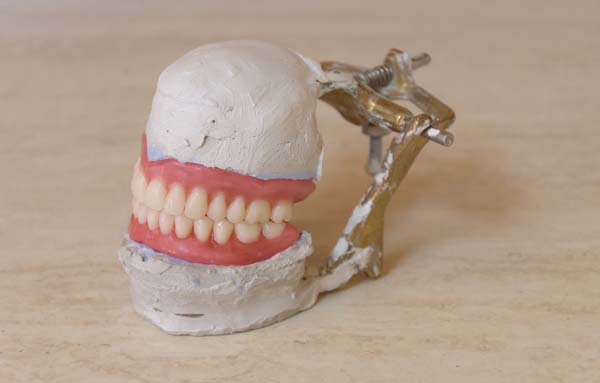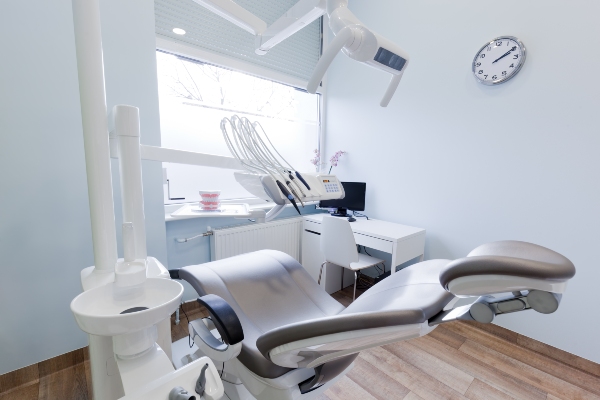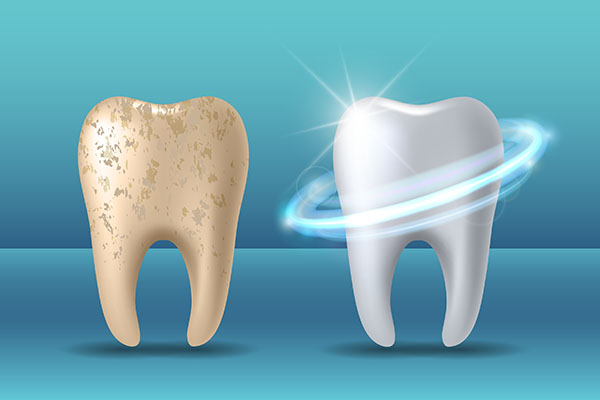Ask a Dentist: Why Shouldn’t I Wear Loose Dentures?

Let's cut to the root of the matter: wearing loose dentures is uncomfortable, dangerous, and often a source of embarrassment for their wearers - mainly when speaking or enjoying a meal.
Many patients don't realize the potential long-term impact of wearing loose dentures or that they don't have to spend months or years dealing with ill-fitting and uncomfortable ones.
How do they become loose?
The number-one cause of loose dentures is called bone resorption. They work by gripping the patient's gum line, allowing for a snug and natural fit. Unfortunately, because the jaw is no longer actively being used to secure and support the teeth, both the jaw and gums begin to recede over time.
This is the process referred to as bone resorption and the leading cause of looseness. While practicing good oral health can slow this process, many patients will still suffer denture discomfort because of the phenomena at some point in their lives.
What are the risks?
There are many severe downsides to living with loose dentures. These include long and short-term health issues, as well as social embarrassment and discomfort during daily activity.
Other common issues:
- Inflamed and painful gums
- Frequent oral sores
- Persistent headaches due to an uneven bite
- Nutrient deficiencies due to difficulty eating
- Advanced bone resorption in the jaw
More severe health risks include an increased risk of oral cancer and fungal infections of the mouth.
Other considerations
Many of our patients also report loss of confidence and self-esteem when they experience this looseness. Patients' discomfort and embarrassment when their dentures become dislodged at inopportune moments can cause significant mental distress and social anxiety.
Some patients suffering from looseness also notice undesired changes to their facial structure and appearance. This occurs because the teeth (and, by extension, dentures) play a vital role in supporting and "rounding out" the cheeks. Patients with looseness may notice sunken or depressed cheeks and other facial features.
Another social consequence of this looseness be a change in speech. Dentures that have excess movement in the mouth or become easily dislodged often cause lisps, slurred speech, difficulty pronouncing certain words, and excessive salivation when speaking.
How to tell if yours are loose
We always suggest scheduling an appointment with your dental specialist for the most precise diagnosis, but you may be suffering from loose dentures if you frequently:
- Experience gagging due to denture movement.
- Have red or swollen gums.
- Readjust them when speaking or eating.
- Struggle to bite or chew properly.
- Notice an increase in slurring, lisping, or salivating during speech.
Other less frequent symptoms include:
- Changes to appearance and facial structure
- Pressure sores
- Angular Cheilitis
- Stomatitis
- Advanced bone resorption
- And more
Luckily, this all can be treated by a skilled dental professional. While irritating, loose dentures are by no means uncommon, giving rise to various effective treatments.
Request an appointment here: https://crossstreetfamilydentistry.com or call Cross Street Family Dentistry at (978) 867-0190 for an appointment in our Peabody office.
Check out what others are saying about our dental services on Yelp: Dentures in Peabody, MA.
Related Posts
Dental crowns stand out among dental restorations as versatile and effective solutions for various oral health issues. A dental crown, or "cap," is designed to cover and encase a damaged or weakened tooth, restoring its strength, function, and appearance.Over the years, advancements in dental technology have led to the development of various types of dental…
Teeth whitening is a way to improve the appearance of your smile by removing stains on highly visible teeth. Professional teeth whitening is performed either in the office or through at-home kits prescribed by the dentist. This review highlights the pros and cons of teeth whitening treatments. The benefits you receive from teeth whitening depend…
Your dentist can help determine if you need dental crowns. There are many reasons for getting these restorations. The main goal is always to restore the tooth and enhance its functions. Here are the signs you may need dental crowns soon.Losing at least one tooth can cause more dental problems. It can lead to dental…
Professional teeth whitening sessions can get you the white set of teeth you have always wanted. It involves using products that contain whitening agents like hydrogen peroxide and hydrogen carbamide to oxidize stains and remove them. What is the difference between professional teeth whitening treatments and the countless products sold at drug stores, you ask?…


